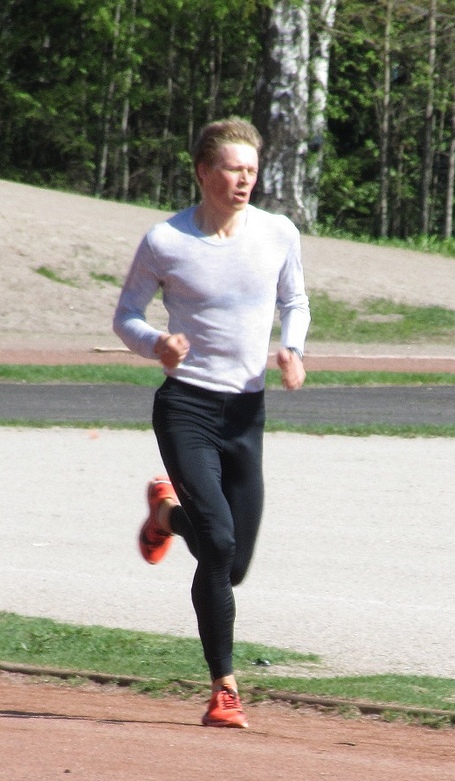You’re finally in good shape. Congratulations. You’ve done well. But now what do you do?

Do you simply maintain your body composition? Keep doing what you have been? Try to get just a little bit better – get a tiny bit leaner, add a few more pounds to your PR, etc.? Or, maybe take on a new challenge?
Here’s what I think.
We never truly arrive at an ideal state of health and fitness. We never reach perfection. It’s a process. And the closer we get, the harder it gets to keep making progress. For example…
-Getting from 10% bodyfat to 5% bodyfat is much harder than getting from 20% to 15%. The leaner you get, the harder it gets.
-Going from 300 to 350 lbs in the barbell squat is much harder than going from 100-150 lbs. The stronger you get, the harder it gets.
-Shaving a minute off of your one mile run time is much easier when you’re running ten minute miles than when you’re running fives. The faster you get, the harder it gets to improve further.
In other words, the closer you get to your peak potential, the harder and more slowly the results will come.
Now, we know that fitness training should be specific to your unique needs, goals, and circumstances. For instance, if you’ve got a bad back, achy knees or a bum shoulder, your fitness program should address that. And if you’d like to run your first marathon, set a new PR in one of your lifts, or reach single-digit bodyfat, then your program should be designed accordingly. That much is obvious.
But here’s the thing. Most people tend to specialize in one or two things that interest them rather than doing the things they really need. This is something I had to deal with when working as a personal trainer at my local health club years ago. Many of my clients wanted to do certain things, but they really needed to do some other things to achieve their goals. For example, some of the females I trained weren’t very interested in strength training, even though that was the most suitable method for achieving their goals. And some of the guys I trained didn’t want to do anything outside of the weight room – none of that “cardio or yoga stuff” – even though that’s exactly what they needed.
And this happens all the time – even outside of the trainer/client relationship. We do the things that we like to do because we enjoy them, are good at them, keep seeing progress, etc.
Those who are strong keep lifting.
The endurance athletes keep running/swimming/etc.
The hyper-flexible keep deepening their yoga practice.
But here’s the problem…
Most strength athletes – professional and recreational alike – would really benefit from cardiovascular training.
Most endurance athletes would really benefit from some strength training.
Most yogis and yoginis would really benefit from both.
And get this. All of them would benefit from improving their diet and nutrition, which is something else that takes time, energy, research, planning, and work (ie your diet is “training,” too!).
So, here’s what I recommend: Always have well-thought out goals that integrate both your strengths and weaknesses, and prioritize your goals accordingly. And as you get better at one aspect, start to prioritize some of the others a little more.
So, if you can already squat or deadlift twice your bodyweight, but you can’t run a mile effortlessly, then do a little bit more running. Or, if you’re a star endurance athlete, but you’re riddled with aches and pains, then it may be time to work on some mobility, flexibility, and/or strength training to correct any dysfunctions, imbalances, etc. And if you’re the most flexible person you know, then start integrating some strength training, too. It’ll do your body good.
Final Words
The longer I’ve trained, the more I’ve felt that having well-rounded fitness – and to an extent, being a fitness “generalist” – is much better for health, mobility, and functionality, among other things. It’s quite simply a superior option for those of us who don’t require highly-specialized fitness, like a professional athlete does.
Of course, if you are actually a professional athlete whose career is dictated by your performance, then by all means, put your specialized performance goals before your health, mobility, and functionality, if necessary, for your career. But the rest of us should prioritize our performance a little differently. And in my opinion, the vast majority of people should prioritize their health first. In practical terms, this means devoting more of your attention to your weaknesses, for most people. And for many of us, it means becoming a more well-rounded athlete.
Food for thought: what’s the most important thing you should be working on right now – even if it’s not your favorite – and what one small step can you take to get started?
If you found this article helpful, please share it with your friends:
.jpg)
![]()
Health-First Fitness Coach
P.S. If you liked this post, then please signup for the newsletter, or follow me on Facebook or Twitter for daily updates and other interesting info.
Great article! If you like to work together and wouldn’t mind having some of your work published on my new health and fitness site, send me an email. I have so much going on including writing my first autobiography. I’m at the ground floor of everything and find it a little challenging to blog the way I would like to. But this my friend is good stuff!
Thanks, Lionell! I’m up to my ears with work these days, but I’ll keep you in mind for the future.